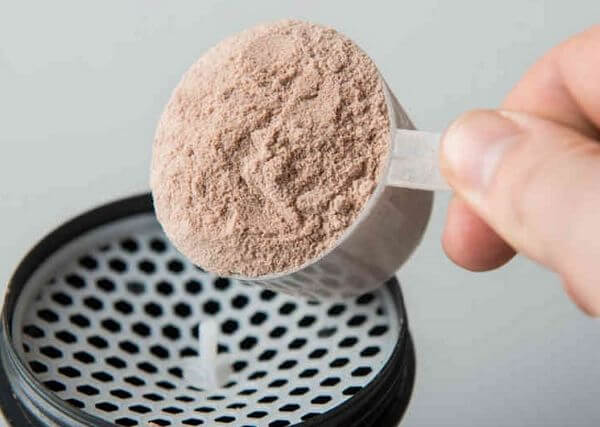In the realm of health and wellness, protein supplements have taken center stage. Two popular options, bone broth powder and collagen powder, have garnered attention for their impressive protein content and associated benefits. While both offer significant nutritional value, they differ in their sources and composition.
In this article, we’ll delve into the bone broth powder vs. collagen powder debate, exploring their unique qualities, benefits, and considerations to help you make an informed choice.

Table of Contents
Protein Content
Protein content is a crucial factor to consider when comparing bone broth powder and collagen powder. Bone broth powder is derived from simmering bones, tendons, and ligaments, resulting in a protein-rich product. However, the exact protein content can vary depending on the brand and specific ingredients used.
Collagen powder, on the other hand, is primarily sourced from animal hides, tendons, and bones. It is known for its high collagen protein content, which is the most abundant protein found in the body and contributes to the health of our skin, joints, hair, and nails.

Click Here to Shop For The Best Bone Broth on The Market!
Amino Acid Profile
Amino acids are the building blocks of proteins and play a vital role in various bodily functions. Bone broth powder and collagen powder offer different amino acid profiles.
Bone broth powder typically contains a balanced combination of essential and non-essential amino acids, including glycine, proline, glutamine, and arginine. These amino acids are associated with promoting gut health, supporting joint function, and aiding in muscle recovery.
Collagen powder, on the other hand, is particularly rich in specific amino acids like glycine, proline, hydroxyproline, and arginine. These amino acids are essential for promoting collagen synthesis, supporting skin elasticity, and maintaining healthy connective tissues.
Additional Nutrients
Both bone broth powder and collagen powder provide additional nutrients that contribute to overall health and well-being. Bone broth powder, due to its sourcing from bones, contains minerals like calcium, magnesium, and phosphorus, as well as glucosamine and chondroitin, which support joint health.
Collagen powder, in addition to its protein content, is rich in collagen-specific amino acids that provide targeted benefits for the skin, hair, nails, and joints. It may also contain certain minerals and antioxidants, depending on the source and processing methods.
Culinary Applications
Bone broth powder and collagen powder can be incorporated into various recipes to boost their nutritional profile. Bone broth powder, with its savory flavor, is commonly used as a base for soups, stews, sauces, and gravies. It adds depth and richness to culinary creations.
Collagen powder, on the other hand, is virtually tasteless and dissolves easily in liquids. This makes it a versatile option that can be added to smoothies, coffee, baked goods, or even stirred into soups or sauces without altering the taste.
Considerations and Personal Preferences
When choosing between bone broth powder and collagen powder, personal preferences, dietary restrictions, and lifestyle factors come into play. Consider the following:
- Dietary Restrictions: If you follow a specific diet, such as paleo or keto, it’s essential to ensure that the product you choose aligns with your dietary requirements.
- Sourcing and Quality: Look for products that source their ingredients responsibly and undergo thorough testing to ensure quality, purity, and absence of contaminants.
- Lifestyle and Convenience: Consider your lifestyle and convenience preferences. Bone broth powder may require more preparation time if making it from scratch, while collagen powder offers instant usability.
- Desired Benefits: Evaluate the specific benefits you seek. Bone broth powder may be preferable for those looking for joint support, gut health, and a wider range of amino acids.
Collagen powder, on the other hand, is often favored for its potential benefits to skin, hair, nails, and connective tissues.
Absorption and Digestibility
Both bone broth powder and collagen powder are generally well-absorbed and digested by the body. The amino acids in both forms are broken down and utilized by the body to support various functions. However, it’s important to note that individual digestive systems may respond differently to different protein sources. Some individuals may find one form more easily digestible than the other based on their personal sensitivities or preferences.
Price and Availability
Price and availability can be factors to consider when comparing bone broth powder and collagen powder. Bone broth powder can vary in price depending on the brand, quality, and sourcing of ingredients. Making bone broth from scratch using bones can be cost-effective but requires time and effort. Collagen powder, on the other hand, is generally more readily available and can be found in a range of price points, depending on the brand and quality.
Supporting Products
In addition to bone broth powder and collagen powder, there are other related products available in the market. These include collagen peptides, which are similar to collagen powder but undergo further processing to break down the proteins into smaller peptides for enhanced absorption.
There are also bone broth concentrates and ready-to-drink bone broth products that offer a convenient alternative to powder form. These products may be more suitable for individuals who prefer a quick and easy option without compromising on the nutritional benefits.
Bone Broth Powder vs. Collagen Powder
| Aspect | Bone Broth Powder | Collagen Powder |
|---|---|---|
| Protein Content | Derived from simmered bones, tendons, and ligaments | Sourced from animal hides, tendons, and bones |
| Amino Acid Profile | Contains a balanced combination of essential and non-essential amino acids | Rich in collagen-specific amino acids, such as glycine, proline, and hydroxyproline |
| Additional Nutrients | Contains minerals (calcium, magnesium, phosphorus), glucosamine, and chondroitin | May contain additional minerals and antioxidants depending on the source |
| Culinary Applications | Used as a base for soups, stews, sauces, gravies, and other recipes | Can be added to various foods and beverages without altering taste |
| Considerations | Personal preferences, dietary restrictions, sourcing, and quality | Personal preferences, dietary restrictions, and desired benefits |
| Absorption and Digestibility | Generally well-absorbed and digested by the body | Generally well-absorbed and digested by the body |
| Price and Availability | Varies depending on brand, quality, and sourcing | Available in a range of price points and widely accessible |
| Supporting Products | Bone broth concentrates, ready-to-drink bone broth | Collagen peptides |
Conclusion
Choosing between bone broth powder and collagen powder depends on your specific needs, preferences, and goals. Bone broth powder provides a diverse range of amino acids, minerals, and potential benefits for joint health and gut support. Collagen powder, with its high collagen protein content, is particularly beneficial for promoting skin, hair, nail, and connective tissue health.
Consider your desired outcomes, dietary restrictions, taste preferences, and convenience when making a decision. It’s also important to choose high-quality products from reputable brands that prioritize sourcing and processing methods to ensure maximum nutritional benefits.
Ultimately, both bone broth powder and collagen powder offer valuable protein sources with unique qualities. Incorporating them into your diet can be a nutritious addition to support your overall health and well-being. Experiment with recipes and find the form that best suits your lifestyle and tastes, allowing you to harness the benefits of these protein powerhouses.